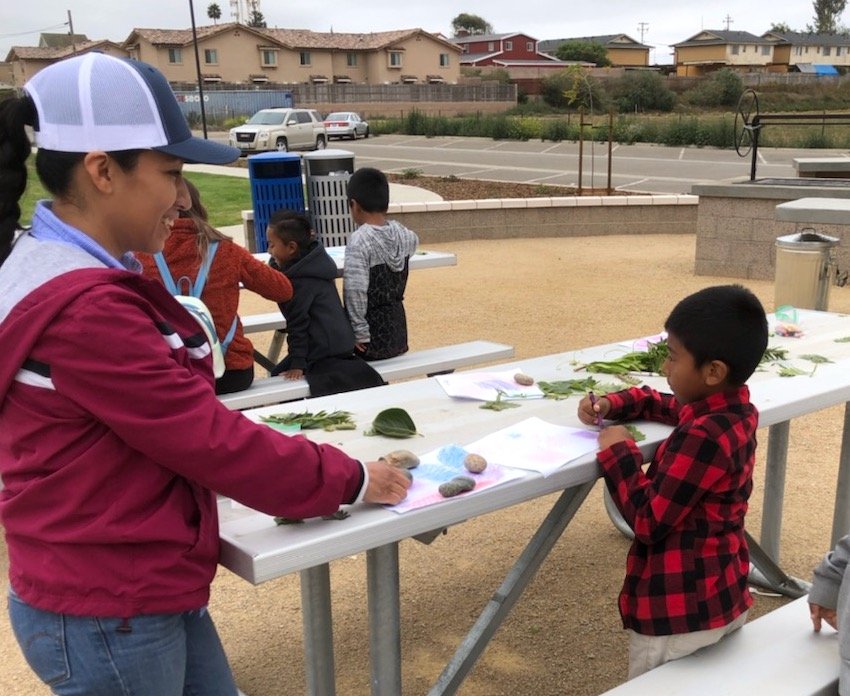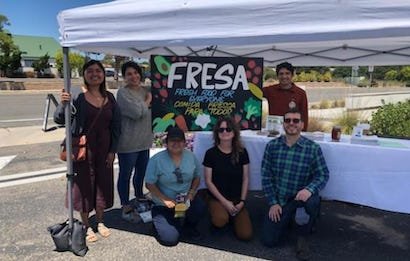Building Community Resilience Through Climate Justice
Newsletter July 2022
Climate change disproportionately impacts vulnerable populations. While there is growing support for equitable solutions, our communities still lack effective ways to incorporate equity and justice into the climate planning process. That's why the Community Environmental Council (CEC) is working toward a climate-resilient future for everyone, particularly those at greatest risk. Below are a few examples of how we are increasing our efforts to address climate threats and inequities – and events you can participate in to learn more and get activated.
Launching Regional Climate Resilience Centers
Neighborhood climate resilience centers – or hubs – provide centralized disaster services, support, and education to residents who are most vulnerable or at high risk during disasters. CEC and its partners are currently seeking facilities across Santa Barbara County that could serve as climate resilience centers. Read more.
Inspiring Climate Action Through Connection
Recent graduate Christina Hernandez shares how CEC’s UC Climate Stewards program helped deepen her community engagement around climate change and nature conservation, and what she envisions for the future of her hometown of Guadalupe. Read more.
Developing a Community-Based Strategy for Expanding Food Access
Despite its agricultural abundance, our region struggles with one of the highest rates of food insecurity in the state. Working with food justice partners, CEC co-launched the Santa Barbara County Food Action Network to advance a healthy, sustainable, and equitable food system. The Network's FRESA (Food Resilience, Equity, Sustainability, and Action) Working Group surveyed more than 500 food-insecure families across Santa Barbara County about how to improve food access, and is now working to launch a farmers' market in Guadalupe. Read more.
EPA Ruling a Step Back for All Humanity
CEC's CEO/Executive Director Sigrid Wright responds to the U.S. Supreme Court's recent controversial ruling on the Environmental Protection Agency’s ability to broadly regulate carbon emissions from existing power plants. The extreme heat wave impacting Europe is just one reason why we must not prioritize polluters over people, especially our most vulnerable community members. Read more.
Learn About Electric Vehicles and Win Prizes
By participating in Central Coast Community Energy's Electrifyze contest, you'll learn how driving electric can help you achieve independence from fossil fuels, reduce your bill at the gas pump, and save you thousands on your next electric vehicle – all while competing for exciting prizes. Learn more and compete.
SCE Quadruples Rebate Offer
for Pre-Owned Electric Vehicles
Southern California Edison (SCE) is offering a $4,000 rebate (four times the previous $1,000 rebate amount) to income-qualified customers who buy or lease pre-owned electric vehicles (EVs). To qualify, you must either live in a state-designated, income-qualified household or be enrolled in certain state or federal income assistance programs. By overcoming one of the key barriers to EV ownership — affordability — the program aims to stimulate EV adoption, a key component in helping the state meet its critical climate and air quality goals. Learn more and apply.
Join Us in Taking Bold Climate Action
Wanted: Heat Pump Owners
Do you own a home in Santa Barbara, San Luis Obispo, or Ventura County? If you have installed an energy-saving heat pump in your residence and want to help spread the positive impacts of using one, please reach out. CEC is co-hosting a virtual peer-to-peer event with the Tri-County Regional Energy Network (3C-REN) later this summer and needs homeowners who have taken this energy-saving step to share their process and experience with others. If you are interested in signing on as a panelist, or want to learn more, email vfong@cecmail.org.





